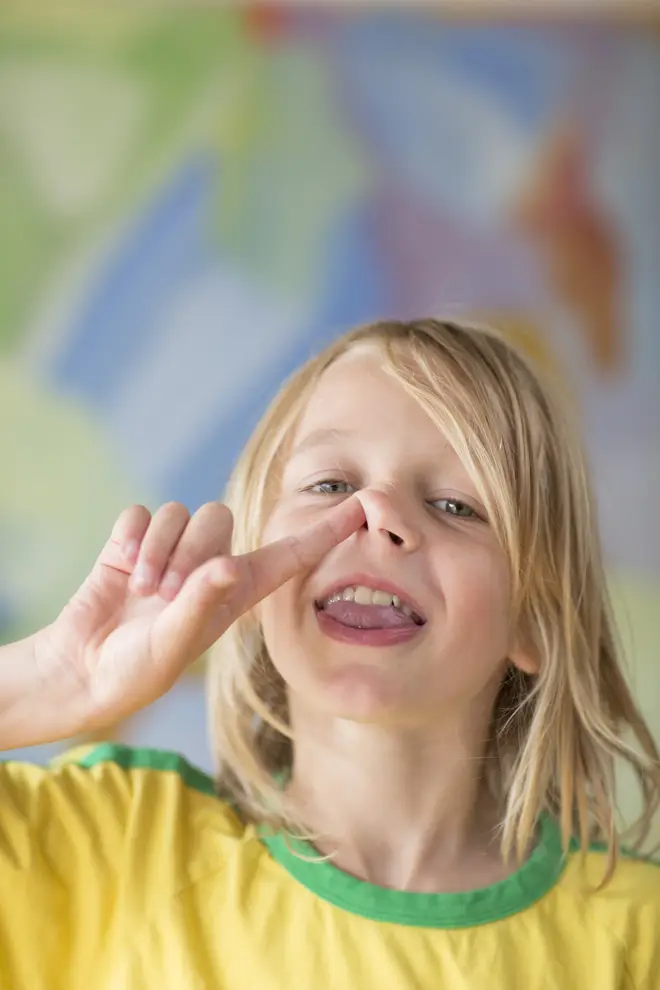On Air Now
Heart's Club Classics with Pandora Christie 7pm - 11pm
11 October 2018, 12:02

Youngsters and the elderly are particularly at risk of the killer bug - which kills more than 1 MILLION people a year.
Picking your nose isn't just a disgusting habit - it's deadly.
A new study has revealed the deadly bacteria that causes the virus can be transferred between your hands and nose - and once inhaled, it's on a direct route to the lungs.
Boffins published their findings in the European Respiratory Journal, explaining that children's hands should be kept clean at all times to protect them from infection - and keep germs away from elderly relatives who are particularly susceptible to the virus.
Read more: People are vowing to never use a hand dryer again after seeing THIS picture
Pneumonia is a swelling in the tissue of the lungs which causes the alveoli - tiny air sacs where oxygen and carbon dioxide are exchanged - to fill with fluid.
It affects around 8 people per 1,000 a year, with most cases happening in autumn and winter.
Dr Victoria Connor, a clinical research fellow at the Liverpool School of Tropical Medicine and Royal Liverpool Hospital, explained the importance of the research, which is the first to prove that the virus can be spread through direct contact rather than just breathing in airborne bacteria.

What is pneumonia?
She said: "Pneumococcal infection is a major cause of death around the world, and it is estimated that it is responsible for 1.3 million deaths in children under five years annually.
"It might not be realistic to get children to stop picking, poking and rubbing their noses, and presence of the bacteria can sometimes boost the immune system of children and can reduce their chances of carrying it again later in life, so it is unclear if completely reducing the spread of pneumococcus in children is the best thing.
"But for parents, as this research shows that hands are likely to spread pneumococcus, this may be important when children are in contact with elderly relatives or relatives with reduced immune systems.
"In these situations, ensuring good hand hygiene and cleaning of toys or surfaces would likely reduce transmission, and reduce the risk of developing pneumococcal infection such as pneumonia."